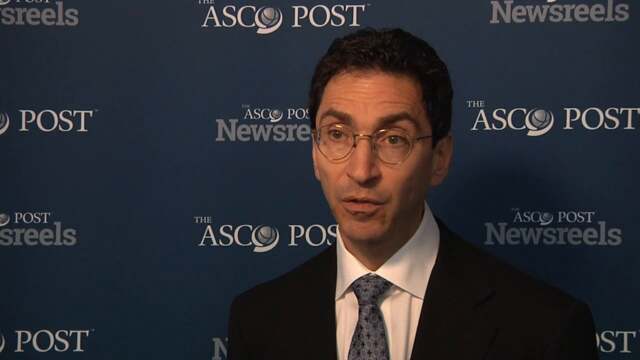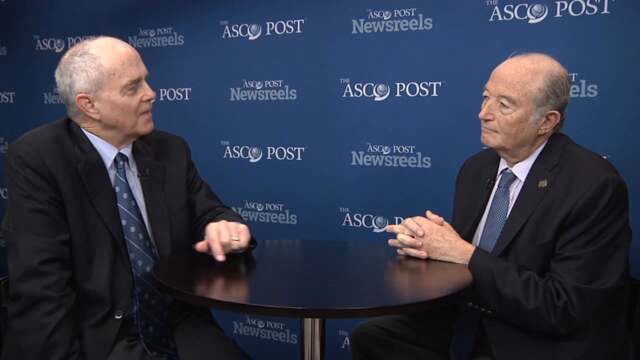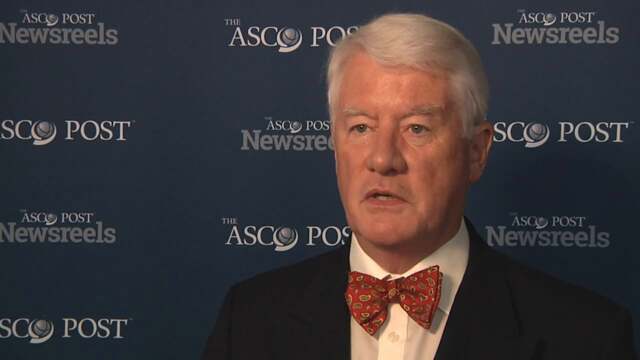Thomas W. LeBlanc, MD, and Eric Roeland, MD, FAAHPM, on Palliative Care for Patients With Hematologic Malignancies
2015 ASCO Annual Meeting
Thomas W. LeBlanc, MD, of Duke University Medical Center, and Eric Roeland, MD, FAAHPM, of the University of California, San Diego Moores Cancer Center, discuss the use of palliative and hospice care for patients with solid tumors vs hematologic cancers and clinicians’ attitudes (Abstracts e20554 and 9524).
Related Videos
Leonard Saltz, MD
Leonard Saltz, MD, of Memorial Sloan Kettering Cancer Center, discusses how the cost of care affects behavior and decision-making on the part of patients and oncologists.
Eduardo Cazap, MD, PhD and James O. Armitage, MD
Eduardo Cazap, MD, PhD, of the Latin American & Caribbean Society of Medical Oncology, and James O. Armitage, MD, of the University of Nebraska Medical Center, discuss oncology from an international point of view.
John Smyth, MD
John Smyth, MD, of the University of Edinburgh, discusses oncology from an international point of view.
Eric Van Cutsem, MD, PhD, and Axel Grothey, MD
Eric Van Cutsem, MD, PhD, of University Hospitals Gasthuisberg/Leuven, and Axel Grothey, MD, of the Mayo Clinic, discuss the Italian-led study on trastuzumab and lapatinib in HER2-amplified metastatic colorectal as well as other colorectal cancer findings discussed at ASCO (Abstract 3508).
Areej El-Jawahri, MD, and Eric Roeland, MD, FAAHPM
Eric Roeland, MD, FAAHPM, of the University of California, San Diego Moores Cancer Center, and Areej El-Jawahri, MD, of Massachusetts General Hospital, discuss two important studies on early palliative care and the use of anamorelin in advanced NSCLC with cachexia.





